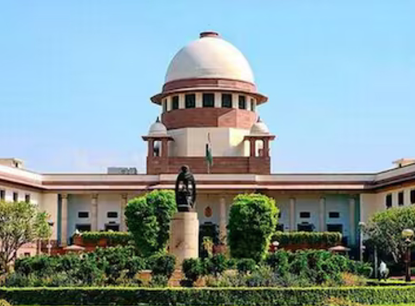Private Property and Public Good (GS Paper 2, Governance)

Context
- The definition and scope of private property have been subject to significant legal and political debate in India, particularly when the question of redistributing resources for the public good arises.
- A recent nine-judge Constitution Bench judgment by the Supreme Court of India sheds new light on the interpretation of private property and its relationship to the Directive Principles of State Policy under Article 39(b) of the Constitution.
- This decision, which had been pending for over three decades, marks an important shift in the way the Indian judiciary views private property rights in the context of the state's role in promoting social welfare.
The Judgment: Redefining Private Property
The Supreme Court's ruling revolves around two key provisions of the Indian Constitution: Article 39(b) and Article 31C.
- Article 39(b): This article is part of the Directive Principles of State Policy (DPSP) and mandates that the state should direct its policies to ensure that "the ownership and control of the material resources of the community are so distributed as best to subserve the common good." The Court's interpretation of this provision now limits its scope, stating that not all private property can be considered as a "material resource" that is subject to redistribution by the state.
- Article 31C: Article 31C was introduced to shield laws that implement the principles of Article 39(b) and (c) from judicial review. It was meant to prevent courts from intervening in laws that sought to give effect to the state's policy of redistribution of resources. However, the Court's interpretation now narrows the application of this safe harbour provision. The Court held that laws cannot override private property rights unless they are in clear alignment with the goals set out in Article 39(b). This limits the power of the state to confiscate or redistribute private property under the guise of promoting the "common good."
Court’s Ruling on Two Key Provisions
The judgment has a dual impact: it protects private property rights while also recognizing the need for state intervention in specific cases where redistribution can serve the public interest.
- Limiting the Scope of Article 31C: The Court has clarified that not all laws enacted for public good automatically override individual property rights under the safe harbour provisions of Article 31C. This means that the government must ensure that any laws affecting property rights are specifically in line with the constitutional goals of social and economic justice set forth in Article 39(b). Thus, property rights are no longer subject to unrestricted state intervention based solely on the broad language of the Directive Principles.
- Redefining Material Resources: The judgment has redefined the scope of "material resources" under Article 39(b). Previously, there was a broader interpretation that could potentially include all forms of private property. However, the Court has now drawn a clearer line, stating that only specific types of property, those that are deemed essential to the welfare of the community, can be subject to redistribution. This marks a departure from past practices during periods like the Emergency, when wide-reaching measures such as land ceilings and nationalization took place.
Historical Context: Revisiting Past Judgments
- The ruling builds upon India's constitutional history and acknowledges key judgments that have shaped the current understanding of private property.
- One of the landmark cases referred to is Kesavananda Bharati (1973), which established the "basic structure" doctrine.
- This doctrine limits the government's ability to amend the Constitution in ways that violate fundamental rights, including property rights.
- The judgment also recognizes past efforts to redistribute wealth during periods of economic upheaval, particularly during the Emergency era, when policies like land reforms and nationalization were implemented to control private resources.
- These policies were grounded in the belief that private property could be used for the public good.
- However, the Court's latest ruling balances this historical perspective with a more modern understanding of property rights in a liberalized economy.
Implications of the Ruling
- Clarification of Private Property Rights: The judgment marks a shift towards a more balanced approach to property rights. While it upholds the sanctity of individual property ownership, it also recognizes the need for state intervention in certain contexts. This nuanced stance reflects the changing nature of India's economy, which increasingly values private sector participation in generating wealth and prosperity.
- Impact on Future Legislation: This ruling has important implications for future legislation targeting private property. Any future laws that seek to modify or redistribute private property must adhere closely to the Court’s interpretation of Article 39(b) and the basic structure doctrine. It also sets a precedent for how the Court will likely assess the constitutionality of future laws aimed at regulating private property in the name of social welfare.
- Economic and Social Considerations: The judgment recognizes the importance of private property in a market-driven economy. It acknowledges that the private sector plays a critical role in wealth creation and economic growth. However, it also underscores the need for social responsibility and fairness in the distribution of material resources, particularly when it comes to addressing inequality.
Conclusion
- The Supreme Court's ruling brings clarity to the relationship between private property and the state’s duty to ensure social and economic justice.
- While it protects individual property rights, it also establishes that not all forms of private property can be subject to redistribution under Article 39(b) of the Constitution.
- This balanced interpretation reflects India’s evolving economic landscape and the need to reconcile individual rights with the broader public good.
- The judgment serves as a critical reminder of the constitutional principles that continue to shape India’s journey towards a just and equitable society.
- Future legislation that affects private property will now need to carefully align with the Court’s ruling to ensure it complies with the constitutional framework.


